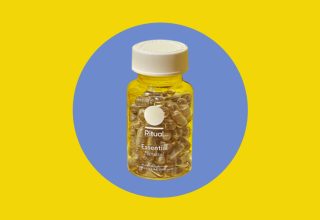Supplements For ADHD: What Will Work For You And Precautions.
| Note: The information in this article is not intended to substitute professional medical advice, diagnosis or treatment. It is based on independent research and does not promote self-medication. Always rely on professional advice that is personalized to your symptoms and overall health. |
Supplements for ADHD is a common question when you look at the different ways people are approaching their health. Mental health care is equally important as physical health when we consider the overall health of an individual.
It is remarkable to see that people are becoming more aware of the different ways we can take care of our mental health and why it is an important thing nowadays. Natural remedies such as exercise, dietary modification and wellness techniques can help take care of one’s health.
A traditional way of “taking care” as per medical science has been medications. These are formulations of drugs in different forms that can help alleviate the symptoms of common health conditions, including mental illness.
However, in comparison to natural remedies, medications tend to have side effects that can be detrimental for the consumer’s health.
Supplements For ADHD: What Are Supplements?

Attention-deficit/Hyperactivity Disorder or ADHD is a mental health condition that When we think about supplements the common names that pop-up is omega 3 or Vitamin D. Some may even think of vitamins and minerals that help enhance the consumer’s health.
These are all right answers, when you consider the different ways, we are taking care of our health and wellbeing. Supplements such as polyunsaturated fatty acids help in taking care of the symptoms of ADHD. There are other supplements as well that can help resolve the symptoms of ADHD, read till the end to know all about them!
There is ample evidence to show that medications do a good job of managing ADHD symptoms in adults and children. How? and why? are common questions we get asked any time we are discussing supplement’s role in our health.
A nutritional supplement can provide the appropriate nutrients that are necessary for optimal functioning and overall health. When we fail to acquire these nutrients and minerals from our dietary sources, doctors recommend non-dietary supplements.
These are synthetic formulations that have the necessary amount of vitamins or minerals for daily need. Of course, your doctor will recommend these based on:
⁃ Your gender
⁃ Age
⁃ Any underlying issues
⁃ Weight
In the case of supplements for ADHD as well, these factors hold true. These form the cardinal rules of supplementation for any physician. So, don’t go around self-supplementing based on hearsay.
Everyone’s physiology affects how supplements and medicines affect us. This is an area of medicine that is non-negotiable as non-personalized medication can lead to lethal side effects.
Let’s have a look at how ADHD symptoms can benefit from supplements.
Supplements for ADHD: How does it fit?

The traditional treatment options for ADHD and other mental health issues, includes medications and other non-pharmacological options such as therapy. The use of supplements to support recovery from symptoms in ADHD is a new concept.
This is because the side effects from traditional medications have only been noted in the past century or less. This is appalling as the healthcare sector is based on the principles of caring for patients and finding ways to improve their wellbeing.
Because we believe in scientific evidence than anything else, there is mixed evidence on the efficacy of supplements for ADHD. This means that some studies have been able to infer positive results for the use of supplements, while some have found negative to negligible evidence in its support.
This may be confusing as there are probably hundreds of pharmaceutical companies claiming that their supplement IS the key to ADHD! This has been misleading patients who needed supplements in support of their ongoing treatment.
So, Why Are They Prescribed?

Even when mental health professionals prescribe supplements, they do so to support the primary treatment. The patient may already be showing signs of improvement with the help of their treatment, which is the purpose of primary treatment. Under circumstances such as when they do not work at all, the professional can make changes to the regime.
Thus, the reliance on supplements alone can lead to poor outcomes as supplements exist to support the primary source of nutrition in general. Moreover, in mental health conditions such as ADHD, it is not appropriate for secondary treatment to replace primary treatment.
The best advice can only come from your healthcare professional who can help you know if supplements are suitable for you. Unless the physician is asking you to rely on natural sources, you may see side effects due to the ingredients of synthetic supplements.
Following are the top supplements that can work well for people with ADHD.
Top 4 Supplements for ADHD
Supplements for ADHD are effective only when they are used within the correct dosage limits. These are recommended based on the person’s physiological symptoms as well as the other factors mentioned in the above section.
The following supplements are suitable for improving the symptoms of ADHD:
Omega-3 Fatty Acids

The supplements that are mostly prescribed to people who are experiencing symptoms of ADHD among other mental health issues. Omega-3 supplements are great for ADHD because they help in alleviating the symptoms of classic ADHD. For example, people with ADHD experience difficulties with attention and focus.
Omega-3 fatty acids are great for such individuals as they can see an enhancement in attention and focus. It is also seen that with this supplement, they can reduce the feelings of anxiety and depression.
These mental health conditions are associated with several other such issues such as ADHD. It is also great at reducing the side effects of stimulant ADHD medications, for example, improving the quality of sleep.
Phosphatidylserine

Phosphatidylserine is a lesser-known supplement that can be effective for mental health issues such as ADHD. Phosphatidylserine promotes cell signaling that is necessary for dopamine cells that have two firing modes.
This supplement helps in restoring the altered dopamine signaling. Alteration in the dopamine signaling can lead to an alteration in the reinforcement sensitivity.
Another role this supplement plays in ADHD is by supporting the structural integrity of neuron membranes that promote the release of neurotransmitters. Lastly, phosphatidylserine is helpful in improving the brain activity patterns, which disrupts during ADHD.
Zinc

Zinc is one of those supplements that have been shown to have positive results in studies on ADHD. This one supplement is helpful in regulating dopamine which has associations with mood, reward and motivation in patients with ADHD.
Zinc supplements have also shown a positive impact on impulsivity and hyperactivity which is prevalent in people with ADHD. Zinc also helps in making stimulant medications work in a better way as they can improve the brain’s response to dopamine.
Vitamin D

Despite being the easiest vitamin to get a complete dose of, Vitamin D is still something that is deficient in adults as well as children in the US! Research shows that children with ADHD have lower vitamin D levels than those without it.
Thus, it is essential to obtain this vitamin, especially through natural sources to avoid any side effects. Vitamin D is helpful in supporting emotional issues, overall behavioral function and mental health in children and adults with ADHD.
Precautions to consider

Despite there being several studies that conclude supplements have a positive effect on ADHD patients, it is necessary to be careful about consumption. Here are a few tips to avoid any negative side effects of supplements:
⁃Do not start taking supplements without professional advice
⁃ Take supplements only in the recommended dosage and intervals
⁃ Always be careful about the combination in which you are taking supplements with your primary treatment. Follow your doctor’s advice.
⁃ If you have missed a dose of the supplement, do not take double of it in the next dose.
⁃ Ensure that you incorporate these vitamins and minerals through natural sources, unless you cannot consume the natural source.
⁃ Check the nutritional information if you are recommended synthetic supplement(s)
These are all the precautions you must take to avoid any side effects or negative impact on your condition.
Safety and Regulation of Supplements

There is a lack of FDA regulation for supplements for ADHD, so it is best not to rely on studies alone. The regulatory bodies of any country must agree on the safety and the efficacy together with the scientific evidence.
There are chances of supplements negatively interacting with other medications in your regime. This is because the ingredients in your medication may have poor interactions with those of synthetic supplements.
Another safety measure that you must take is consulting your healthcare professional before starting a supplement.
Wrapping It Up!
Thus, supplements for ADHD require a lot of consideration so that you do not experience any negative effects. Contrary to popular belief, ADHD is a neurodevelopmental disorder that can affect both children and adults.
There are different ways it can show up in an individual, such as difficulty in paying attention, controlling impulses and being still. Among many other ways a person with ADHD may display its presence.
Supplements are good to support primary treatment, and there is no evidence promoting replacement of the latter. Consult your healthcare professional before consuming supplements.
Read Also:


